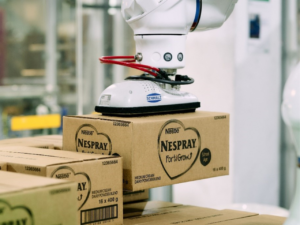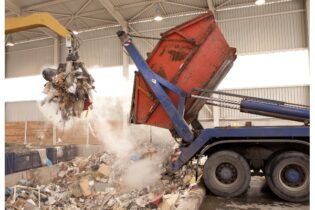About Nestlé
Nestlé is the world’s largest food and beverage company. It is present in 187 countries around the world, and its 291,000 employees are committed to Nestlé’s purpose of unlocking the power of food to enhance quality for everyone, today and for generations to come. Nestlé offers a wide portfolio of products and services for people and their pets throughout their lives. Its more than 2,000 brands range from global icons like Nescafé or Nespresso to local favourites like Ricoffy. Company performance is driven by its Nutrition, Health, and Wellness strategy. Nestlé is based in the Swiss town of Vevey where it was founded more than 150 years ago.
Globally, the scale of the plastic crisis is staggering. In fact, more plastic has been produced in the last decade than in the entire 20th century combined according to earthday.org, underscoring the pressing need for change. However, amidst this global challenge, there are signs of progress.
The plastic pollution in South Africa is on the decline. The SA Plastics Pact’s inaugural report in 2023 revealed a decline in plastic waste, with a notable 43.2% recycling rate in 2020, including a 35.4% rate for plastic packaging alone. This achievement is bolstered by the burgeoning recycling industry, which provides vital employment opportunities to thousands of reclaimers nationwide. The above is vastly emphasised by the efforts and initiatives that corporate South Africa is undertaking for the future and wellbeing of our planet, not only to reduce plastic pollution, but also to work towards a net-zero carbon emissions reduction. With various ongoing measures in place to decrease virgin plastic production, in 2023, Nestlé reduced the pallet wrapping at all its South African factories by 50%. The thinner shrink film, produced with new technology which allows higher stretch properties while maintaining strength and tear resistance, reduced the weight of stretch wrap used to contain and protect products on transportation pallets by 50%. This resulted in an annual reduction of 115 tonnes of plastic packaging.In a bid to enhance recyclability, the packaging material of NESTLÉ NESPRAY sachets has been changed to a laminate to be compatible with plastic recycling processes, otherwise known as Designed for Recycling (D4R). Switching to D4R materials potentially reduces the quantity of packaging material that ends up in landfill sites, and this strategic shift promises a significant reduction of 78 tonnes in packaging material.
“Aligned with our commitment to a 33% reduction in virgin plastic usage by 2025, Nestlé has spearheaded various initiatives to curb virgin plastic consumption. In 2023, we integrated 30% recycled plastic into all shrink film, slashing virgin plastic usage by 190 tonnes annually,” says Mark Helfrich, Packaging Engineering Manager, Nestlé East & Southern Africa.Through projects such as ‘Fit-for-Purpose’, which optimises material usage by reducing the thickness, the size of packs, or possibly even eliminating some secondary or tertiary packaging components, Nestlé demonstrates its ongoing commitment to circularity principles. By minimising packaging material through innovation and optimisation, the company is actively mitigating its environmental footprint. An illustrative example of ‘Fit-for-Purpose’ is the 2022 lightweighting project, where the plastic spoons in infant formula cans underwent a redesign, resulting in a remarkable 60% weight reduction. This initiative, supported by new equipment investments, translates to an annual plastic reduction of 93 tonnes. “By redesigning various packaging structures to be more compatible with recycling processes, we have significantly increased its recyclability. Our goal is to achieve 100% recyclable packaging for all our products by the end of 2025, aligning with current recycling infrastructure. To date, brands such as NESTLÉ KitKat, NESTLÉ BarOne, and NESTLÉ Milo, amongst others, are already in recycling-ready packaging,” ends Mark.





